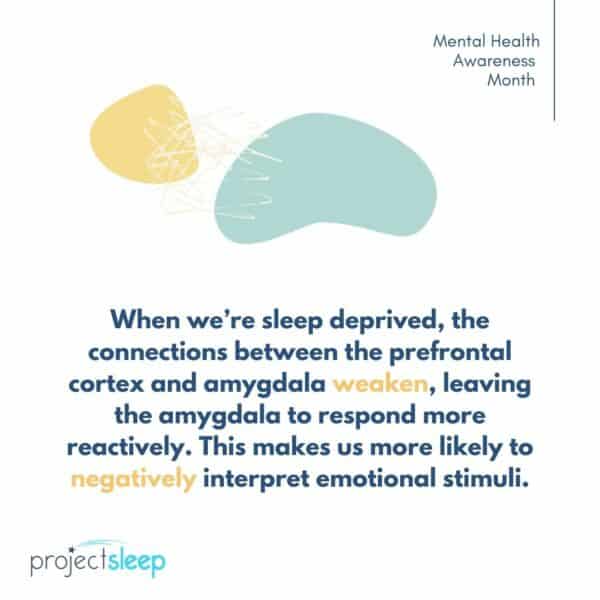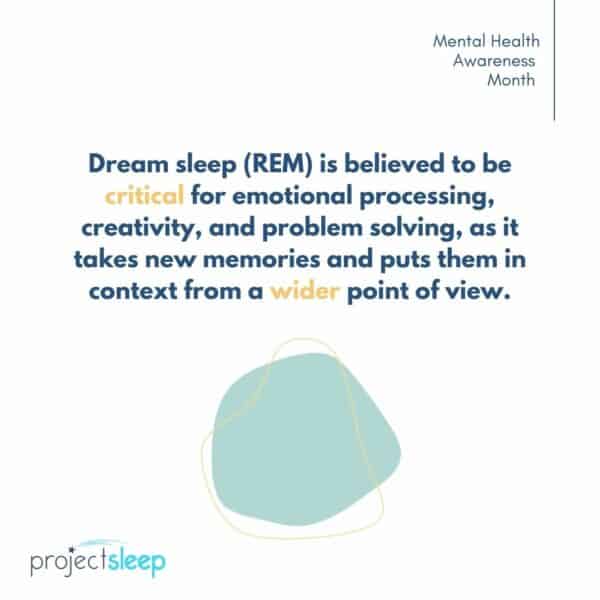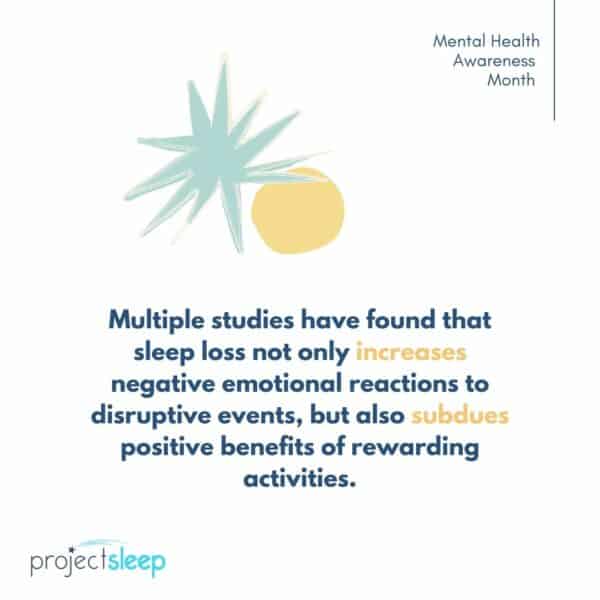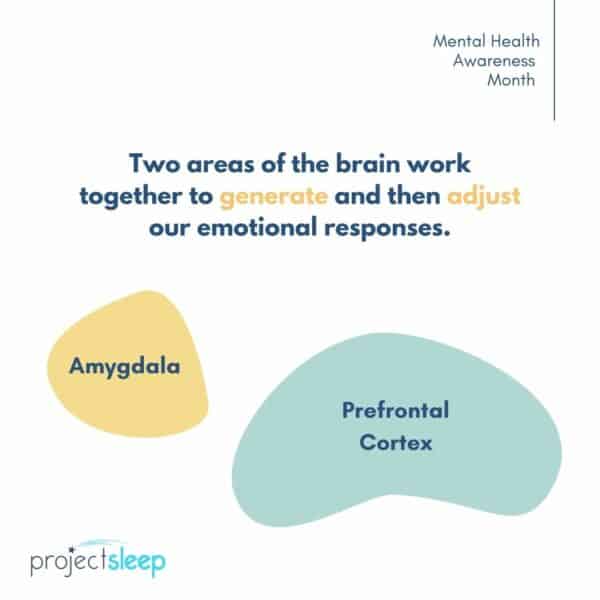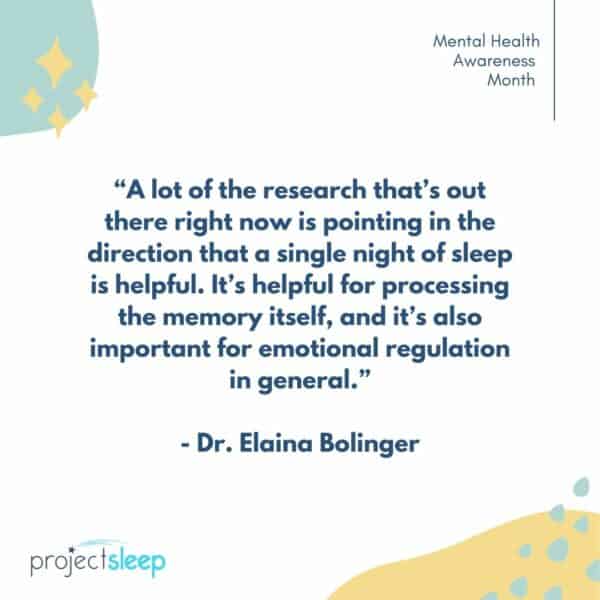Sleep and emotion are closely intertwined. It’s no surprise that sleep—or lack thereof—affects how we react to stimuli during the day. Multiple studies have found that sleep loss not only increases negative emotional reactions to disruptive events, but also subdues positive benefits of rewarding activities (NIH).
Emotions can also influence sleep. From worrying about an exam the night before to watching disturbing films before bed, insufficiently regulated daily stress can cause sleep disturbances (NIH). This means that the quality and amount of our sleep impacts how we react to emotional events during the day, which then in turn affects our sleep.


